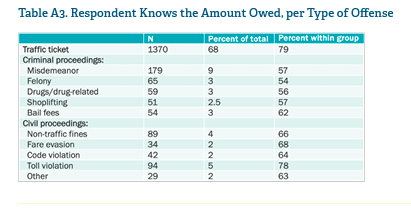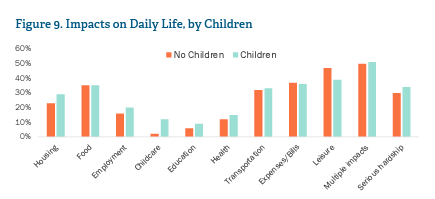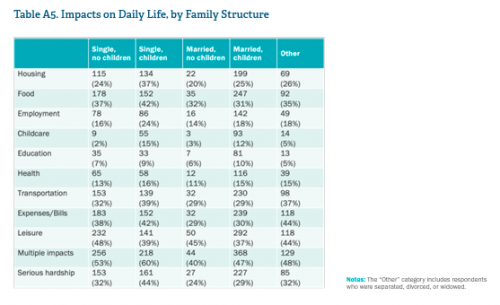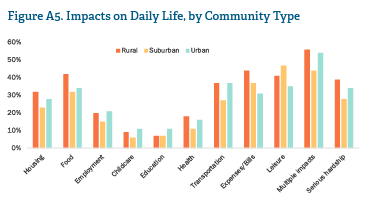

By The Vanguard Staff
NEW YORK, NY – One in three U.S. families are being “directly” impacted by fines and legal fees – court debt, according to a survey released Wednesday by Fines and Fees Justice Center and the Wilson Center for Science and Justice at Duke Law.
The new report “exposes a stark reality: for millions of working families, money needed for necessities, such as food, housing, healthcare and transportation, is being redirected to pay off court debt. At least 17 million families with children sacrifice on essentials due to court debt.”

“Fines are imposed by courts as a form of punishment for a range of infractions, the most common being traffic violations. State and local governments then tack on additional fees to fill budget holes left when they refuse to fund government directly and equitably,” explained the report.
“The United States has put a high price on justice and that price is being felt by millions of Americans. These consequences are not limited by income, jurisdiction or geography – it’s happening nationwide,” said Tim Curry, Policy & Research Director of the Fines and Fees Justice Center.
Curry added, “Left unchecked, this will only further degrade the economic stability of working families.”
“One of the most distressing findings was the impact of court debt on young children. Over half of those impacted by fines and fees had minor children. Nearly all (99 percent) had to cut back on one essential daily need; over half (54 percent) had cut back on two or more,” the study noted.
“When that is extrapolated to the national population, approximately 17 million households with young children are facing shortfalls in food, housing, healthcare, etc.,” the study added.

“Across the country, young children are, in fact, one of the most vulnerable populations to the consequences of fines and fees,” said Lisa Foster, Co-Executive Fines and Fees Justice Center. “It’s absolutely disgraceful that families with young children are being forced to compromise on basic essentials in order to fill government budget gaps.” See here.
The study reported an “overwhelming majority (98.5 percent) of respondents who had court debt said it impacted their daily lives. Over half reported that it compromised at least one of the following essential provisions: housing, food security, employment, childcare, health, and transportation.

Other findings of the study include:
- Over a quarter (27 percent) reported housing hardship, with two-thirds falling behind on rent and mortgage payments and over a third (34 percent) having to move to different accommodations.
- Over a third (35 percent) faced challenges in food security.
- Nearly 20 percent faced negative consequences to their employment, including being unable to work, lacking transportation to or from work, and having to seek additional work or work extra hours.
- Healthcare worsened for 14 percent of respondents, with half being unable to afford medication and nearly half (47 percent) being unable to see a doctor.
- Over a third (32 percent) reported negative impacts to transportation, the most common being the loss of a driver’s license as a result of being unable to pay their debt.

“This survey demonstrates not just the breadth but also the depth of the harms caused by fines and fees,” said Angie Weis Gammell, Policy Director at the Wilson Center for Science and Justice at Duke Law.
Gammell added, “We must work toward a system that doesn’t fund government services in ways that bring financial hardship to working class and low-income individuals and families.”
Curry argued, “If you want proof that this is, at the end of the day, all about raising money, look at how quickly the financial consequences of court debt can multiply and persist. An unexpected traffic ticket can shatter a family’s budget. If they can’t immediately pay, they are continually punished until they make good.”
The study authors said when “someone cannot immediately pay, further punitive measures are often taken, many aimed at raising more money, that not only make it increasingly difficult to pay off debt but jeopardize overall financial stability and have long-term negative impacts on their lives. Measures include levying additional fees, drivers license suspension, issuing warrants, arrest and even jail.”
“Some may think of court fines and fees as an inconvenience or a deserved punishment for infractions, but we found that they produce a variety of significant hardships. In fact, more than half the people we surveyed experienced difficulty paying for an essential need such as housing, food, or childcare as a result of fines or fees,” said co-author Kevin Dahaghi, post-doctoral fellow with the Wilson Center for Science and Justice at Duke Law.




